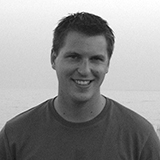We need a new way of working, argues Matt Morgan
 You are the director of a multi-million-pound coffee business. The working lives of your employees, not to mention your customers, are dependent on your actions today. For today, you have been tasked to visit ten of the lowest performing branches in your business. You will need to decide what is wrong with each branch and more importantly what to do about it. You may even need to close a store if the cause of their downfall cannot be rectified.
You are the director of a multi-million-pound coffee business. The working lives of your employees, not to mention your customers, are dependent on your actions today. For today, you have been tasked to visit ten of the lowest performing branches in your business. You will need to decide what is wrong with each branch and more importantly what to do about it. You may even need to close a store if the cause of their downfall cannot be rectified.
The method you have chosen to conduct this process is novel to say the least. You decide to drive from store to store throughout one morning with little or no prior knowledge of their problems. When you arrive, masses of unfiltered, unstructured data are plunged in front of your face. You are shown complex financial reports going back over the last few years, followed by masses of free text from customer comment cards. As you try to synthetize this, you have frequent interruptions from customers ordering new drinks and staff asking how to make them. You do all of this standing up in front of all the shareholders that surround you in the middle of the store. Then, ten minutes later, you announce your decision to increase the strength of the coffee by 10% in all drinks as part of the treatment. You then move on to the next store. By the time you get to the tenth store, you are tired having made a minimum of 200 decisions already that morning. This is known to be the volume limit of reasonable decision making. Then you do it all again tomorrow, and the day after, and the day after that.
When viewed through this lens, the way in which decisions are made in medicine seems crazy. First described by the Dutch physician Dr Herman Boerhaave in the 1700s, the ward round was a great innovative concept at that time. With very limited amounts of information to processes and a small team to communicate with, it was just what patients needed. However, today when I stand in a busy, noisy, critical care unit, presented with hundreds of pieces of data, surrounded by a multidisciplinary team of ten people, it is not what patients need.
Many doctors, including myself and my colleagues have recognised this. I often arrive early for work, sit down in a comfy chair, in a cool office, with a hot coffee. I review the history of patients using my two-screen computer set-up, while writing notes for the ward round on another. I review blood results and contextualise them by speaking to colleagues personally, by phone, and from the confidentiality of my office. I review complex scans while sitting down and examine them in detail. After this process is complete, I move out to the ward, prepared and forewarned. We then conduct a multidisciplinary ward round, with the help of a cognitive checklist, and spend important time speaking to patients, examining them when appropriate, and communicating with them, family members, and other members of the team. We have time to teach, time to reflect, and time to talk. We finish on time (mostly).
The old concept of the ward round is broken and needs to change. This fact needs to be recognised, researched, and taught. It is surprising that although I attend a compulsory resuscitation update annually, I have never been taught how to conduct a better ward round. We need technology to support this shift, and physical areas in which we can sit and review the complexity of patient care. The timetable of the day may need to change to reflect this. Modes of communication, such as using pager technology from the 1980s, need to support, not obstruct, contact. Overall, we need to recognise these issues and move to address them. Our way of working would not be accepted by businesses making decisions of far less impact than we, as healthcare professionals, make every day. The ward round is broken, let’s fix it.
Matt Morgan is an intensive care consultant, scientist, computer programmer, teacher and geek interested in machine learning, medical education and public engagement. Twitter: @dr_mattmorgan
Competing interests: I have spoken at a number of education events for which standard travel expenses have been reimbursed. I received a research grant from Heath Research Wales and the Medical Research Council in 2016. I am paid as the lead clinical editor for BMJ’s onExamination.
